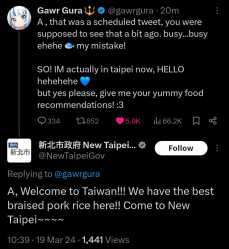>>71791238To be fair, I believe this was due to concerns of a short squeeze occuring. Nijii is a company i have little doubt is on the shortlist of Nikai companies to keep a close eye on for short squeezes.
why?
because not much of the company stock is available in trading, with little trade volume and even fewer shares changing hands, their company is a prime target for an artificially manufactured short squeeze, so i suspect they're under very tight watch by the market
how does a short squeeze work? well it has to do with the way short selling works. I'll explain-
Short selling is when you "borrow" someone else's stock with the promise to return it at a certain time. You are REQUIRED by law to return it. There is no way around this, in fact it's built into the machinery of the market, in effect, the owner of the shares is GUARENTEED to have his share back by the exchange. remember this.
So the borrower of the stock then "sells" the borrowed stock the moment they get their hands on it. However, remember the owner of that stock is guarenteed his stock back, so what happens is a "proxy share" is created by the market and put into the origional owner's portforlio, however since the proxy share isn't real, it cannot be traded, this is the market risk a shorted stock's owner takes, until the shortsell lending period is up, they cannot sell their stock that they leant out. the period of time for the lend is often rather short, 1 month or 2.
so the short seller has sold a "borrowed share" to another investor at the time he borrows it, and now is on a countdown, where he needs to turn that proxy share the original lender has into a real share, in essence he has until the end of his borrowing time to buy that share from someone else; but we have a problem here.
until the short seller buys a new share to replace the one he sold, there are now 2 shares in existence (on paper) where 1 share used to be.
This is where the short squeeze comes in. So now we scale short selling up to the hundreds of thousand or even millions of transactions...
IF the volume of regularly available traded stocks for a company becomes LESS then the outstanding "proxy" shares you've created what's called a short squeeze. Basically the short sellers will have flooded the market with more fake shares then there are real shares to turn them into.
so when the clock strikes zero on their borrowed time for that share, and the short sellers need to produce a real share to hand back to the original lender to replace the proxy stand in, and he's one of 10,000 short sellers trying to buy only 8,000 real shares on the market, we hit the squeeze.
with no stock to buy (none for sale) the price starts to go up on the company shares in hopes of encouraging people holding onto their shares to sell them. This is what happened to gamestop. with no real shares available the price just keeps climbing because the short sellers are FORCED to replace the borrowed share. so even if it costs them a million dollars for one share they have to pay it. this can bankrupt entire hedge funds in minutes (which is what the gamestop short squeeze did)
and this is what the japanese market is keeping an eye on. because of Nijii's rather low availability of tradeable stocks, and the recent downturn in stock price, market activity for short selling likely ticket up agressively around Nijii, which likely clued the market regulaters in on a possible short squeeze situation developing with Nijiisanji. Hence the stopage of trading and the stopage of short selling on nijii shares.
From the outside it looks like regulators are attempting to pump nijii stock up artificially, but that's just a by product of their actions. what they're really doing is preventing a short squeeze, either intentionally created by market manipulators or unintentionally

